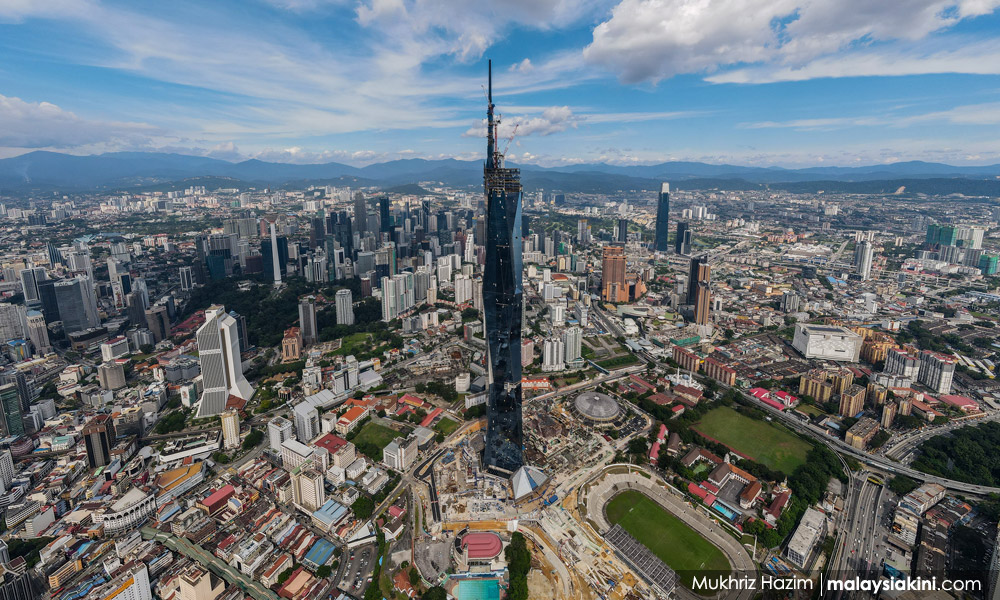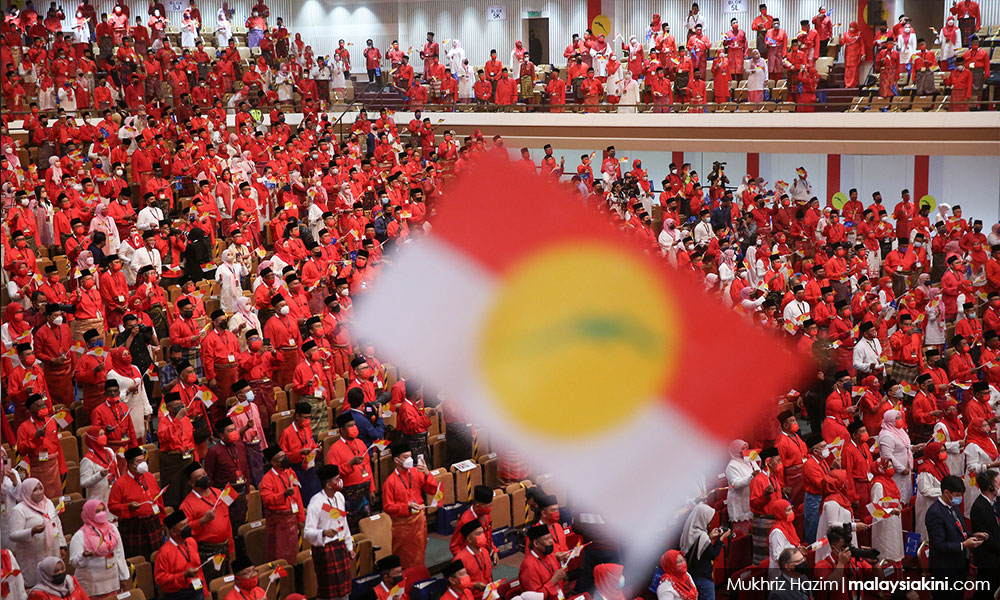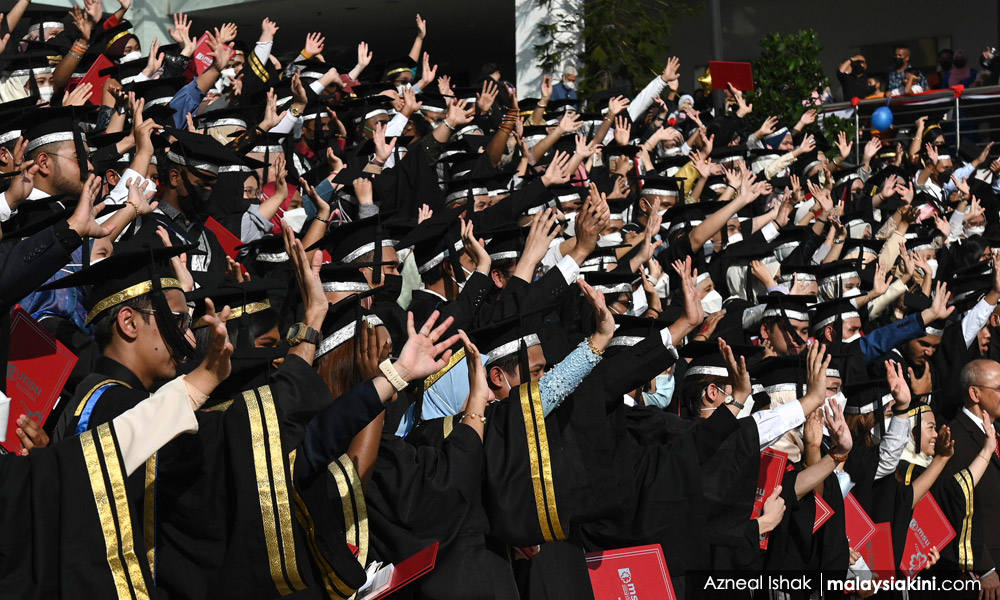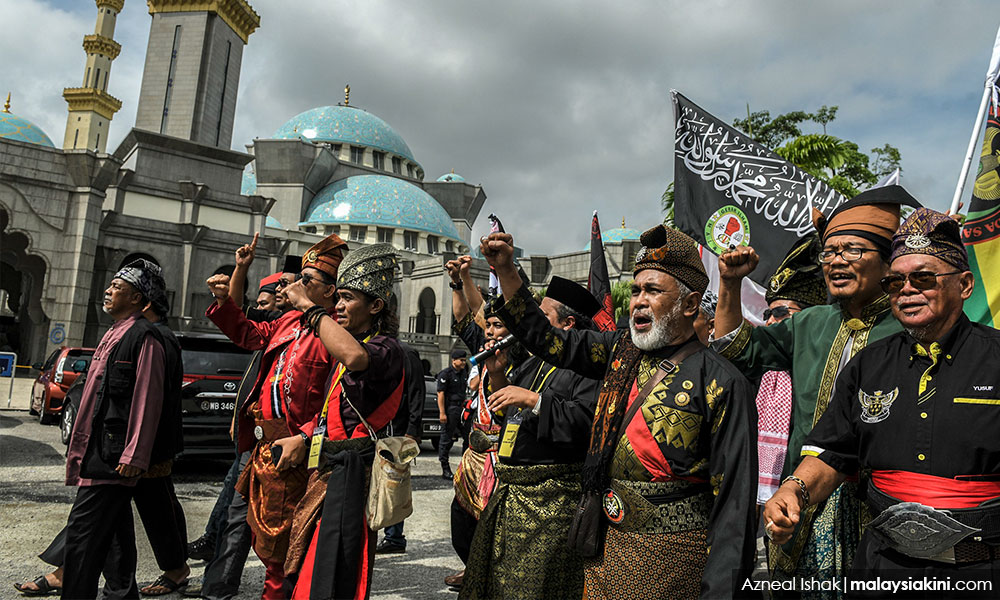Two of the most encouraging trends in the troubled world we live in have been the fight for gender equality and the search for racial justice through the rejection of all forms of racial discrimination.
Very few of us need to be reminded about the Me Too or Black Lives Matter movements, both of which originated in the US, but which have been persisting in different forms in other countries for decades despite not gaining mainstream media attention.
On racial justice, the documentation on camera of the murder of a black man by white policemen in the USA shocked millions around the world, yet this behaviour has been going on for decades.
The mobile phone just made it a lot easier to capture the evidence and share it with the world. That single event forced a discussion in the US and the wider Western world about systemic racism and white privilege.
In Malaysia, where by and large there isn’t thankfully this sort of systemic racial violence, the fight to reverse decades of institutional racism and discrimination against minorities seems to be gaining traction.
But there is one very interesting and distinguishing obstacle: those with political power – and the architects of this institutional racism – seem determined to hang on to a racist system because of this system’s ability to preserve their privileges, many of which are ill-gotten, and which helped create and normalise the systemic corruption that now engulfs the country.
They seem oblivious to the fact that the world is rapidly pivoting away from oppressive systems like this, and will quickly find themselves on the wrong side of history. They seem to live in a time warp, unaware that Malaysians of all races will not put up with it forever.
The writing is on the wall. Just like apartheid in South Africa was dismantled, institutional racism in Malaysia will be torn down by forces from within and external.
The architects of this system are sadly the Malay political elite and their stewards (of all races) in an entire ecosystem they have created to perpetuate their control of a rent-seeking economy upon which they thrive, and which is wholly dependent on their ability to retain political power by shamelessly using institutional racism to govern.
A fine example is the entire bumiputra first policy with regard to the award of government and GLC contracts. There is no other country in the world that has built such a

Malaysians should note that when issues to do with racism come to the fore in different parts of the world, political and community leaders speak up and denounce it. Business leaders are quick to also join. But not in Malaysia, as it is the bread and butter of the political economy in which political and business leaders are key players.
And this is sad because this unique form of institutional racism then also very unfairly taints all Malays in the eyes of others – including our foreign friends – which in turn leads to all Malaysians partaking in racism in one way or the other.
I raised these questions in a recent article I wrote about what GLCs should do to push back against institutional racism before it is too late. I was pleasantly surprised by the thousands of people who read it just on LinkedIn. This suggests that the professional classes are willing to engage and confront this debilitating feature of how our nation is governed and thus how it affects every facet of our daily lives, irrespective of race.
A key question is this: Why do the majority of Malay elites – who should know better – stay silent on this issue?
In discussing this vexing question with my Malay friends, some of whom sit on GLC boards, management teams or work in the government, I have learnt a few things about the inertia to tackle what we all know is cancer in our society and which is leading to the decline of this nation on many levels. It surely is an issue all educated and responsible citizens should be most concerned about.
Firstly, these Malay friends believe that racial discrimination is not institutionalised and certainly do not see nor accept that it exists in their organisations. On one hand, it is understandable that despite their international experience and even liberal education, they are in such a state of denial.
It is for one very good reason: they are the key beneficiaries of the system. Malaysians need reminding that the origin of the system (NEP) was to help uplift the poor Malays, which most will agree is vital and remains a priority.
But the evidence to date is that it has not achieved this with a clear conclusion and is now in fact working against the deserving and disenfranchised Malays because the NEP has been hijacked by political elites with deep economic interests of their own. The elite Malays have become the anti-Malay.
Meritocracy
The denial among the elites exists because many got into positions of power and accumulated wealth by conveniently leveraging the system that was built to maintain Malay supremacy and privileges, and without having to compete with non-Malays (90 percent of the civil service are Malays, for example).
Thus as we are witnessing regularly many think nothing of engaging in schemes which plunder the public coffers as if incapable of public service other than looking to benefit from rent-seeking practices. Competition in Malaysia is invariably competition for rent via race, not one of meritocracy. The leakages from the public coffers are significant as the current unimaginable LCS scandal highlights.

The apologists also find excuses by saying everyone is racist, although this is not germane to the issue of institutional racism being discussed. They argue that the GLCs and civil service are not racist, despite the telling data on the racial mix of their workforce, management teams and boards.
They also claim that there is indeed meritocracy – which all minorities know from experience is not the case – and that issues of racial discrimination can be laid at Umno’s doorstep and are not a function of how elite Malays have made the bed to suit their needs.
he denial is deep and widespread, though there are a few exceptions to the rule. But these individuals too, find it difficult to speak out openly for fear of being ostracised by fellow Malays, being stripped of their positions by political masters and even accused of not being good Muslims.
Non-Malays who have borne the brunt of this discrimination for half a century and point to this injustice are then labelled as anti-Malay, which is an accusation that is so rich in its irony. It is a bit like accusing black Americans of being anti-white.
Another common response is that the minorities are racist too within the economic sphere and especially the economically powerful Chinese. This was a view shared by some in response to my last article on GLCs and racism and they rightfully cite reports about racism towards Malays in the private sector. This is indeed true and reprehensible.
It is sadly a fact that in the private sector Malays are discriminated against by non-Malay-owned organisations in terms of job opportunities and salaries. Yet much of this is partially a product of the institutional racism in education and the active discrimination with regard to jobs for non-Malays within the civil service and GLCs that is fostered by the government.
Discriminatory education policies have benefitted Malays – at the expense of the non-Malay minorities – and granted them access to university and degrees without upholding academic standards and not requiring them to compete on the same level playing field. And it is no secret that Malay elites do not send their kids to local universities because they know only too well that in most the standards are low.
Thus, many Malay graduates are not properly qualified and unsuited to do jobs in a rapidly changing and demanding workplace. They are also fearful of working in non-Malay environments and then when accepted are discriminated against by being offered jobs at lower salaries than non-Malays due to being viewed as having inferior qualifications and less ambition.
I have Malay friends in the private sector who say privately that as much as they want to hire and coach young Malay staff the quality coming out of the local Universities is so poor that it is a massive challenge. Spoken and written English is almost non-existent. This is a classic, yet sad example of how institutionally racist policies by the state can in just one generation have wide-ranging unintended consequences.

A common and convenient response is also that Chinese businesses, such as banks, are not equal-opportunity employers as they mainly employ their own. There is truth in this, and it should not be occurring but all of this simply points to the sad state of affairs in the country. It is a reflection and result of the racial nature of governance in the country, yet this framing of the issue is conveniently ignored.
Leaving aside the Chinese population, why are the Indians and other minorities (including those in Sabah and Sarawak) actively marginalised from GLCs and disproportionally under-represented? What explanation can be given, other than the obsession of the Malay political class with a misplaced belief in the need to protect the position of the Malays at the expense of all others? In this, the elite Malays are no different from the white supremacists in the US.
Moreover, in these discussions with my Malay elite friends, there is almost always an inevitable need to point out that whilst the private sector may act in a racist way – Chinese, Malay and Indian companies are all complicit – it is the role of the state to correct this by introducing policies on equal opportunities and being the strongest advocate of racial equity.
It should not instead be the entity that practices the largest system of racism and act as the guardian of institutional racism. It should not be seeking to address the racism that is present in the private sector by institutionally enacting racist policies against minorities in all areas of the economy.
Ketuanan Melayu
What is unacceptable and which most of my Malay friends in the corporate world and even government ignore is this simple principle: in a multicultural society the majority – in this case, Malays - cannot use the instruments of the state to discriminate against other citizens who are the minorities. It cannot persistently and actively discriminate against other minorities and justify it for decades by saying that racism exists within the economically powerful non-Malay business communities.
There are other ways to correct that. It needs to be understood and clearly stated that for a multicultural society to exist harmoniously, the state has to view and treat all citizens as equals, and no one has special rights over another on racial or religious grounds. This is unconscionable and in that regard, Malaysia stands out as outlier, internationally. The question is: Does anyone in power care or does the idea of ketuanan Melayu overshadow basic moral values and ethics?
This fundamental principle is a value our political and business leaders seem oblivious to. It is thus incumbent on all citizens, especially the professional classes – led by Malays, hopefully – to hold them to this basic principle of governance.
Another common refrain from elites is that articles like this and other efforts by people seeking to dismantle institutional racism are of little value as they are not addressing something called the “Malay heartland”, this mysterious monolithic group which apparently demands to preside over the large-scale institutional discrimination of non-Malays.
The accusation is that it is simply a case of ineffectual liberal elites talking to each other through the English language newspapers and that the real problem is with the orang kampung and that is where they should take their arguments for reform to.
But this is in fact a cop-out and a convenient way of not taking responsibility or showing leadership. What better way to continue to be a beneficiary of an apartheid system than to say, “this has nothing to do with me” and it is the great unwashed masses in the kampongs that you need to talk to first?
But the guilty charge must be laid at the doorstep of the elite Malay class, given they are the ones who need to change their abuse of the system and, if needed, start to change the mindset of the “Malay heartland”.
Our efforts to dismantle institutional racism have to be directed toward them, so they are made to stand up and are counted. Otherwise, they will never be exposed for working to preserve what is perhaps the most institutionally racist scheme in the world apart from states like Israel.

And as the world at large increasingly rejects these sorts of injustices being inflicted on minorities, Malaysia will find itself left behind in the scrap heap of regressive nation states. After all, even conservative Muslim countries like Saudi Arabia are reforming rapidly. Malaysia will find itself an outcast even in the Muslim world where changes are so rapid – witness our neighbour Indonesia and its pluralistic Pancasila values – and where the search for more progressive approaches is relentless.
Our Malay political elites on the other hand are instead relentless in their search for ways to take the county backward with racist policies, to actively discriminate against non-Malays for fear of having their rent-seeking privileges taken away. And that is the farce of the noble idea of Keluarga Malaysia.
What seems to have helped hold back this open discussion in the country, apart from the widely unproductive political sniping about racism – which is often racist in itself - is the fear of engaging in an honest conversation.
Decades of treating this as a “sensitive” subject have instilled fear in the non-Malays who have almost abdicated their citizenship to the Ketuanan Melayu, who in turn have run amok, sowing seeds of racism everywhere.
Non-Malays need to reclaim their citizenship by speaking out constructively and openly. Even think tanks – especially those led by non-Malays – tread very carefully on this issue and invariably avoid the much-needed analysis to show how destructive it is to the economy and society at large.
Malay-led think tanks with liberal agendas such as IDEAS etc, conveniently avoid it and use the fig leave of democracy to call for reforms in the country, hardly ever mentioning the racist system that flourished within our so-called parliamentary democracy.
This fear by the non-Malay has turned upright Malays – who should know better but have chosen to remain silent – into hypocrites and even closet racists. They have had to live with the trauma of knowing they are upholders of one of the most racist systems in the world and yet try and lead stand-up lives and on a daily basis look into the eyes of their non-Malay friends and fellow citizens, knowing that the discrimination they endure is not something they even understand.
This must be hard to live with and the only way to come to terms with it is to be in denial or find arguments to defend the indefensible.
They have to live with the knowledge that the NEP now benefits them as elites, does not help the deserving poor Malays as promised, and it is they who are effectively discriminating and depriving their fellow Malays of their rights.
They thus know it goes against the teachings of Islam. They have to try and sleep with that bitter truth. This is in many ways the New Malay Dilemma and it has its roots firmly embedded in the decaying pot of institutional racism.
It has thus turned all Malaysians into racists and the clock is ticking on this time bomb. The only way to diffuse it is to openly acknowledge it, and create a narrative that allows for honest debate between all races and within a safe public space.
There are positive signs that this is beginning to happen and all of us need to take a single action every day to dismantle institutional racism in Malaysia. An honest conversation with an open mind is a good way to start. - Mkini
CHANDRAN NAIR is the founder and CEO of Global Institute for Tomorrow and the author of “Dismantling Global White Privilege: Equity for a Post-Western World”.
The views expressed here are those of the author/contributor and do not necessarily represent the views of MMKtT.




No comments:
Post a Comment
Note: Only a member of this blog may post a comment.